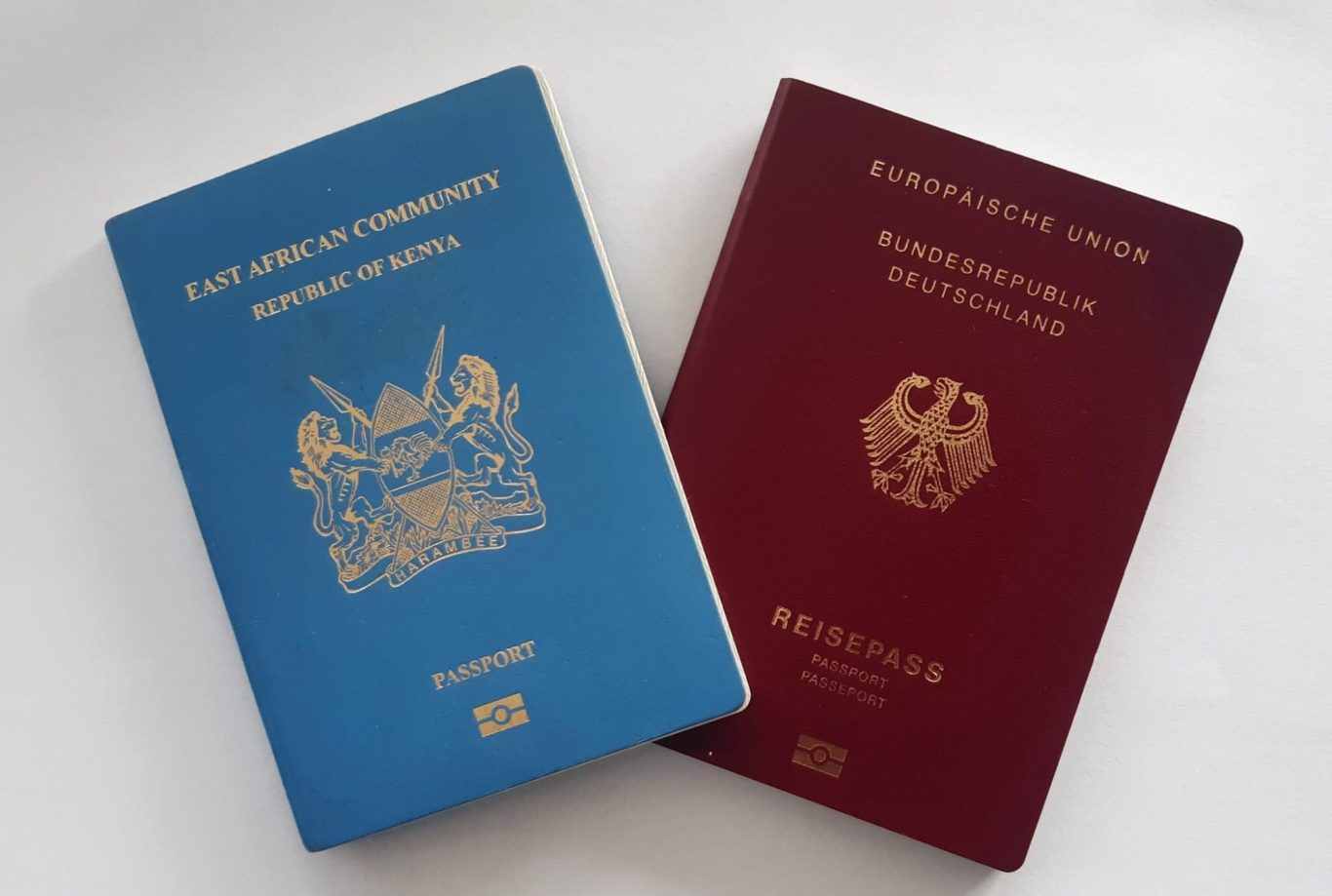
Germany’s opportunity card gains global traction with over 10000 applications in the first year
Author: Cyrus Robiro, Migratunity Consulting, 30th April 2025
In June last year, Germany introduced a point-based immigration system allowing skilled foreigners to travel to Germany without a concrete job offer through the Opportunity Card (Chancenkarte). This new system enables job seekers to stay in Germany for up to one year to search for employment. It replaced the previous six-month job-seeker visa expanding both the timeframe and flexibility for job seekers.
Unlike the former job seeking visa, the Chancenkarte allows holders to work part-time for up to 20 hours per week while they look for a job matching their qualifications. Once a suitable job is secured, they must convert the Opportunity Card into a standard working residence permit.
For university graduates, the job secured must require a degree, even if it is in a different field, as long as the profession is unregulated. However, this flexibility does not apply to regulated professions such as doctors and nurses, who must still obtain a professional license to work in Germany.
One year after its launch, more than 10,000 people from around the world had successfully applied for the Opportunity Card, according to the German Centre for Integration and Migration Research (DeZIM). India led the list with over 4,600 applications, followed by China with nearly 800 and Pakistan with 511. In Sub-Saharan Africa, Ghana had the highest number of applicants (127), followed by Kenya (113) and Nigeria (105).
Challenges: Language and Job Market Realities
Although the Opportunity Card application process is relatively straightforward for those who meet the requirements, many holders face difficulties once in Germany. A major challenge is finding skilled employment without sufficient German language skills. Additionally, securing part-time jobs has proven difficult, as many employers are hesitant to hire individuals with a temporary residency status.
For this reason, it is recommended that Opportunity Card applicants begin their job search before arriving in Germany. This helps them understand the job market better and increases their chances of finding employment. Moreover, even for roles advertised as English-speaking, many employers expect at least basic proficiency in German. For those struggling to find immediate employment, vocational training or university studies in Germany remain viable alternatives to enhance long-term employability and integration.
30.05.2025

Good news for dual citizenship in Germany
Author: Cyrus Robiro, Migratunity Consulting
Over the last few weeks and months, many German residents with foreign citizenship have been living on the edge due to the rising political temperatures that saw migration become the key topic dominating the just concluded federal elections. While this largely polarized debate migration mostly focused on asylum seekers and undocumented migrants, it was not lost to a few observers that the recently reformed citizenship law — which made dual citizenship the norm rather than the exception — was also a point of contention. Particularly the conservatives (CDU/CSU) who, as indicated earlier on this page, had been poised to win the elections had indicated that this policy would be reversed once they win elections. Equally earmarked for reversal was the shortened regular naturalization residence period of five or three years for very well integrated foreign residents. Many prospective German citizens thus held their breath after the CDU/CSU parties emerged as the winners beating SPD, Greens and FDP who formed the previous government.
Dual citizenship to remain, but naturalization will require 5, Not 3 years
However, as the CDU/CSU did not win the absolute majority to rule by themselves and have to thus seek a coalition partner. Based on the results of the elections, the only politically viable possibility was the CDU/CSU with SPD as a coalition partner. As such, over the last few weeks, the three parties went into negotiations which have been concluded today. On Migration, there are several aspects that have found their way to the coalition agreement. Mostly importantly, and which is good news for all those seeking to apply for German citizenship, the SPD seems to have had its way to retain the changes on the citizenship law as reformed last year. As such, the dual citizenship and the 5-year residence period required to acquire German citizenship will remain unchanged. However, the possibility for citizenship after 3 years will be done away with.
Following successful negotiations, the coalition agreement now awaits approval from political parties, including the CDU/CSU committee, as well as the members of the SPD, who will have the opportunity to accept or reject the agreement through a Mitgliederentscheid. If approved, the new government is expected to take office in early May and begin implementing the laws outlined in the coalition agreement.

Can the German dual citizenship law be reversed?
Author: Cyrus Robiro, Migratunity Consulting
The recent developments in Germany, particularly the firing of Finance Minister Christian Lindner by Chancellor Olaf Scholz and the potential shift in government after the 2025 elections, have indeed raised questions about the future of the country’s citizenship laws. The uncertainty around the future of dual citizenship is a particularly pressing issue for non-citizen residents, as the political landscape looks set to shift in the direction of the conservative CDU/CSU, who have historically opposed dual citizenship.
Here's a breakdown of the current situation and what it means for residents and potential new citizens in Germany:
1. Current Citizenship Laws (as of 2024)
Under the existing German Citizenship Act (Staatsangehörigkeitsgesetz), significant reforms were passed by the Scholz government, which have expanded access to German citizenship:
- Dual citizenship is now permitted, meaning that people can hold both German citizenship and the citizenship of another country.
- The minimum residency requirement to apply for German citizenship has been reduced from eight years to five years.
- Under special conditions, it’s possible to acquire citizenship after only three years of residency (e.g., for people who are particularly well-integrated into German society).
These reforms were passed due to the strong support from the ruling coalition, which had a majority in the Bundestag at the time. The goal was to make Germany's citizenship laws more inclusive and aligned with the realities of a globalized, multicultural society.
2. Potential Change in Government
The CDU/CSU, historically opposed to dual citizenship, is expected to win the next election in early 2025. Several key figures from these parties, such as Andrea Lindholz, have already signaled their intent to "revisit" the recent reforms, especially the allowance for dual citizenship.
However, while the CDU/CSU is predicted to win, it is likely they will not have an outright majority. This means they would need to form a coalition with one or more other parties to govern. Given that the parties supporting the current citizenship reforms (e.g., SPD, Green Party, FDP) are unlikely to agree to a complete rollback of the changes, the future of the law will likely be subject to negotiation.
Key Possibilities:
- Revised, not Reversed: The CDU/CSU might try to scale back or modify certain aspects of the law, such as limiting dual citizenship or increasing the residency requirements again. However, any significant change would likely be moderated by coalition negotiations, particularly with the parties that supported the reforms in the first place.
- Gradual Phase-Out: Another scenario could involve a phased-in approach to change, where the government might impose stricter conditions on acquiring citizenship over time, but not immediately affect those who have already acquired or regained German citizenship under the new rules.
3. What Does This Mean for Non-Citizen Residents?
- For Those Who Have Already Acquired Citizenship: If you have already obtained German citizenship or regained your original citizenship under the current rules, it is highly unlikely that these changes will affect you. Legal rights are usually not retroactive, and there is typically a grandfather clause that protects people who have already been granted citizenship.
- For Those Who Are Still in the Process: If you are in the process of applying for citizenship, the outcome will depend on the timing of the political changes and whether the CDU/CSU and their potential coalition partners introduce any modifications to the law after they take office. If you're close to meeting the residency requirements (e.g., five years), there is a chance you could benefit from the existing rules before any changes occur.
- For Future Applicants: For people who plan to apply for German citizenship after the 2025 elections, there is a greater degree of uncertainty. Depending on how the next government chooses to amend the laws, it may become more difficult to qualify for citizenship or hold dual citizenship. However, since the CDU/CSU would likely have to compromise with other parties in any coalition, sweeping changes might not be immediate or drastic.
4. Conclusion
The upcoming elections in Germany will likely lead to some changes in the country's citizenship laws, but these changes may not be as severe as some anticipate. While the CDU/CSU has expressed their opposition to dual citizenship, any significant alterations to the law will require coalition negotiations. For those who have already secured citizenship under the new rules, there should be little to worry about. However, for those in the process or planning to apply in the future, it’s wise to stay updated on political developments, as the outcome of the elections and coalition talks will likely influence the final shape of the citizenship laws.
Studying, working and living in Germany
Studying, working, and living in Germany as a Kenyan can be a rewarding yet challenging experience. Germany is known for its high-quality education system, strong economy, and diverse cultural environment, making it an attractive destination for international students and professionals. However, like any country, it also comes with its own set of challenges, particularly for immigrants from countries like Kenya.
Cyrus Robiro, our Managing Director, shared some personal insights on this during his interview with KTN’s Persil Telewa on the Globe Traktion show.
Migratunity at the German-Kenyan Job Fair in Nairobi
In September, the German and Kenyan governments signed the Comprehensive Migration and Mobility Partnership Agreement which mainly aims to create pathways for Kenyans to work and train in Germany.
In the lead-up to the signing, we provided our expertise on studying, working and living in Germany at several events including at a meeting on the sidelines of the 5th edition of the Annual Kenyan Women In Germany e.V. in Germany (KWIG) event in Mainz and a panel discussion in Berlin. The events which were organised by the Kenyan State Department for Diaspora Affairs | Kenya focused on labour migration and how Kenyans can benefit from this agreement. We were honored that Migratunity Consulting was invited to contribute to this vital discussion.
Following the signing of the agreement on 13th September attended by the Kenyan President Dr. William Ruto and German Chancellor Olaf Scholz, Migratunity Consulting had the privilege of participating in a Labour Mobility roundtable consultation hosted by Kenyan President Dr. William Ruto in Berlin. Notable attendees included Prime Cabinet Secretary and Cabinet Secretary for Foreign and Diaspora Affairs Musalia Mudavadi, former Prime Minister and AU Commission Chairperson candidate Rt. Hon. Raila Odinga, EGH, Labour Cabinet Secretary Dr. Alfred Mutua, Principal Secretary for Diaspora Affairs Roseline Kathure Njogu and the Kenyan Ambassador to Germany Amb. Stella - Mokaya Orina.
A highlight for us was the successful Kenya-German Job Fair in Nairobi organised by the Delegation of German Industry and Commerce for Eastern Africa (AHK Eastern Africa) Goethe-Institut Nairobi and the GIZ Kenya. We had the opportunity to engage with many ambitious young Kenyans seeking opportunities in Germany and were pleased to host both the Kenyan Cabinet Secretary for Labour and the German Ambassador to Kenya at our stand. Our Managing Director Cyrus Robiro, also participated in a panel discussion at the fair addressing crucial aspects of the agreement, particularly from the perspective of the Kenyan diaspora in Germany.
We look forward to continuing our involvement in the ongoing conversations that will bring this agreement to life and support Kenyans in their pursuit of opportunities in Germany.




Interview with tuko.co.ke: Opportunity Card
Foreigners who apply for the Opportunity Card, aka Chancekarte, to Germany, can stay in the country for one year looking for a job One can apply for the Opportunity Card at the corresponding Germany Embassy as long they at least have vocational training or a university degree In an interview with TUKO.co.ke, a German immigration expert from Kenya, identified as Cyrus Robiro, said that applicants will also have to prove that they have KSh 1.7 million in the bank. Read more
